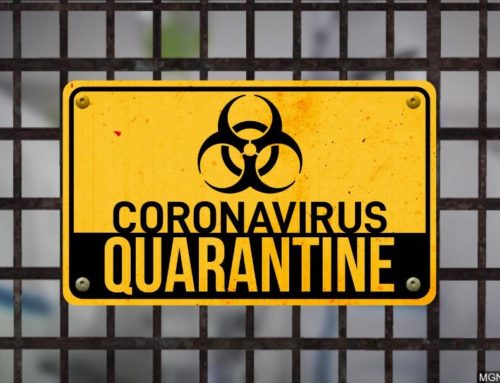Concussions are serious injuries that can be even more serious if you don’t get the time and rest needed to heal them completely. Many injuries suffered after an accident are visible to the naked eye – a broken bone, a laceration or a bruise – making them easier to treat an diagnose. But less visible injuries, such as concussions, are no less dangerous. Concussions and traumatic brain injuries have been a hot topic and more awareness is being brought the dangers and long term effects. We tend to associate concussions with football and for a good reason, but concussions can happen in many other ways. It’s a great time to learn more about the brain health issue that can affect any of us at any time, no matter our age, gender or athletic ability. Medical professionals, high school officials, parents, coaches, and student athletes are working together to bring more awareness to concussions. At Schulze Law, we want to help inform and educate you as well.
Concussion victims should take their recovery seriously. If you were injured through no fault of your own, please call Schulze Law today.
What is a Concussion?
Traumatic brain injury (TBI), also known as a concussion or closed head injury, is a major public health concern. According to the CDC, a concussion is a type of traumatic brain injury—or TBI—caused by a bump, blow, or jolt to the head or by a hit to the body that causes the head and brain to move rapidly back and forth. Generally, our skulls provide excellent protection to our brains. And spinal fluid surrounding the brain acts as a cushion, protecting your brain from slamming into the inside of your skull. But, this sudden movement can cause the brain to bounce around or twist in the skull, creating chemical changes in the brain and sometimes stretching and damaging brain cells. Medical providers may describe a concussion as a “mild” brain injury because concussions are usually not life-threatening. But, the effects of a concussion can be serious and cause long term issues and can be associated with severely dangerous implications.
What are the Signs and Symptoms of Concussions?
According to the CDC, most people with a concussion recover well from symptoms experienced at the time of the injury. But for some people, symptoms can last for days, weeks, or longer. In general, recovery may be slower with older adults, young children, and teens. Those who have had a concussion in the past are also at risk of having another one. Some people may also find that it takes longer to recover if they have another concussion. As research has been showing, repeated concussions can cause long term effects.
Unfortunately, concussion symptoms can vary from person to person and injury to injury so it can be difficult to diagnose. Some symptoms may appear immediately. Others symptoms might not be noticed for days or months after the injury, or until the person goes back to their everyday life. Sometimes, people do not recognize or admit that they are having problems. Others may not understand their problems and how the symptoms they are experiencing impact their daily activities. In the beginning, problems may be overlooked by the person with the concussion, family members, or doctors. People may look fine even though they are acting or feeling differently.
That said, below are some of the signs and symptoms of a concussion. Please don’t delay seeing a doctor or visiting an emergency room if you suspect a concussion.
Danger Signs in Adults
- Headache that gets worse and does not go away.
- Weakness, numbness or decreased coordination.
- Repeated vomiting or nausea.
- Slurred speech.
- Look very drowsy or cannot wake up.
- Have one pupil (the black part in the middle of the eye) larger than the other.
- Have convulsions or seizures.
- Cannot recognize people or places.
- Are getting more and more confused, restless, or agitated.
- Have unusual behavior.
- Lose consciousness.
Danger Signs in Children
- Have any of the danger signs for adults listed above.
- Will not stop crying and are inconsolable.
- Will not nurse or eat.
As a reminder, no concussion looks exactly alike so play it safe an get checked out!
Concussion Facts
According to ProtectTheBrain.org:
- According to CDC estimates, 1.6-3.8 m sports and recreation related concussions occur each year in the U.S.
- 10% of all contact sport athletes sustain concussions yearly.
- Brain injuries cause more deaths than any other sports injury. In football, brain injuries account for 65% to 95% of all fatalities. Football injuries associated with the brain occur at the rate of one in every 5.5 games. In any given season, 10% of all college players and 20% of all high school players sustain brain injuries.
- 87% of professional boxers have sustained a brain injury.
- 5% of soccer players sustain brain injuries as a result of their sport.
- The head is involved in more baseball injuries than any other body part. Almost half of the injuries involve a child’s head, face, mouth or eyes.
- An athlete who sustains concussion is 4-6 times more likely to sustain a second concussion.
- Effects of concussion are cumulative in athletes who return to play prior to complete recovery.
- Up to 86% of athletes that suffer a concussion will experience Post-Traumatic Migraine or some other type of headache pain. In fact, recent evidence indicates that presence and severity of headache symptoms may be a very significant indicator of severity of head injury and help guide return to play decisions.
- 1.5 million Americans suffer from traumatic brain injuries
- A traumatic brain injury occurs every 15 seconds
- It’s the number one cause of death in children and young adults
- Fewer than 1 in 20 will get the facts they need
- It causes 1.5 times more deaths than AIDS
Wow…as these facts and stats indicate, concussions are dangerous, common and are to be taken very seriously.
Common Causes for Concussions
- Sports Related Injuries
- Car accidents
- Commercial truck accidents
- Bus accidents
- Bicycle accidents
- Motorcycle accidents
- Pedestrian accidents
- Falls from heights
- Slips, trips, and falls
- Getting hit by a falling object
- Construction accidents
- Other workplace accidents
- Assaults
Steps To Take Post Concussion
According to the Cleveland Clinic, follow these tips to help decrease your symptoms and speed up recovery:
- Identify and avoid your triggers. Any activity that produces or increases symptoms is considered a trigger. It is important for you to know what aggravates your symptoms to speed the recovery process.
- Get some sleep. Our brain recovers during sleep. Sleep is even more important when recovering from a concussion. It is common to feel more exhausted from daily activities such as school or homework while recovering from a concussion. If needed, take short naps (30 to 60 minutes) when tired.
- Rest your brain. Overstimulating your brain after a head injury will not allow it to rest and recover. Using your brain to think hard, read, study or try to learn new material may be very difficult and may aggravate your condition. Processing new information can be harder for anyone who is concussed. If you have work or studying to do, spread it out and take frequent breaks.
- Rest your body. While recovering from a concussion, avoid doing anything that significantly increases your heart rate unless you’ve been cleared by a physician. Light activity, such as walking or riding a stationary bike, may actually help in your recovery, as long as it doesn’t worsen the symptoms.
- Be smart. Rest and recover. Returning to sports or other activities too soon after a concussion can worsen symptoms and keep you out of your activities longer.
Things To Avoid After A Concussion
- Excessive physical activity. An increased heart rate may worsen your symptoms.
- Strenuous mental activities. Reading, computer work, playing video games, texting and watching TV can overstimulate your brain.
- Driving too soon. As a precaution, do not drive for at least 24 hours after a concussive injury. Your reaction time may slow down, increasing the risk of accidents.
- Pain relievers. Use caution taking aspirin or anti-inflammatory medications. Theoretically, they may increase your risk of bleeding. They can also mask symptoms, leading to worsening symptoms when the medications wear off.
Consider Legal Action
If another negligent party caused an accident that resulted in a concussion, the victim has the right to hold that party responsible for any losses, including medical bills and lost wages. We can help evaluate your situation and determine the best route to take. Depending on the circumstances, you might sue the party at fault and get monetary compensation for your injuries.
Concussions should not be taken lightly so be sure to get the care and attention you need. By spreading awareness around the dangers of traumatic brain injuries, we can help reduce the frequency and long term side effects. If your concussion is a result of another person’s carelessness, you may have the right to file a lawsuit seeking compensation your losses, including medical bills, costs of therapy and rehabilitation, lost wages, and other costs associated with short and long-term care. It is extremely important to consult Schulze Law to make sure that your rights are protected.
https://www.cdc.gov/
http://www.protectthebrain.org/
https://health.clevelandclinic.org/






